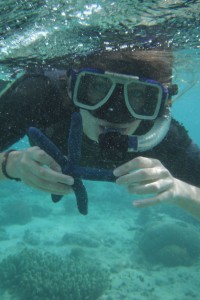By Tracy Lum
Editor-in-Chief
In the 2010 midterm elections, 12,040 of the 22,383 registered voters in Union County cast ballots Tuesday, according to the Union County Bureau of Elections.
The approximate 54-percent voter turnout rate was comparable to that of the 2006 midterm election, said Greg Katherman, director of elections and voter registration in Union County.
“Almost the same number of voters voted,” he said in a phone interview, though he could not provide a definitive percentage comparison. The voter turnout was up from roughly 33 percent in the spring primaries, he said.
For the presidential election in 2008, Union County polls reported an approximately 72 percent voter turnout rate. Though Katherman anticipated a 60 percent turnout for the midterm elections, he said some people did not come out to vote because they did not perceive this election to be as important as the presidential election.
“My guess is that … younger voters didn’t come out in this election, whether it’s college kids or young working people,” Katherman said.
Looking at the age demographics from voters in the election, he said a more senior group came out to vote. Full data on voter demographics in Union County will not be available for two weeks, but according to a national exit poll conducted by CNN, about 11 percent of the electorate was between the ages of 18 and 24 and about 23 percent was age 65 or over.
Students from the University registered to vote in Union County cast ballots in one of four polling locations: Larison Dining Hall, the Weis Center for the Performing Arts, the Donald Heiter Community Center or the Union County Courthouse. The proper voting location depended on where students lived on campus when they registered to vote, unless they notified the government center of the address change.
Some students were confused about where to vote. Elliot Franz ’11 did not figure out his polling location until two hours before the polls closed. He noticed a lack of information and discussion about the election on campus, especially compared to the array of posters, signs and pamphlets that decked the campus two years ago.
“Nobody really talks about it,” Franz said, “but I think this election makes more of a difference than the presidential election in some respects.”
Other students believe that people were not well informed about this election.
“I feel that because of the Bucknell Bubble and the disconnect between many Bucknell students and the people of Lewisburg, many students were not even aware until it was too late to register that midterm elections were taking place,” said Sarah Coppock-Pector ’13, an intern at representative Chris Carney’s office in Lewisburg. Coppock-Pector and fellow intern Lucy Christensen ’12 focused their efforts on Snyder and Union counties instead of on campus.
Daniel Murphy ’11 said he did not vote in the election because he did not know who was running in the area.
“I didn’t want to vote when I don’t know the issues being discussed and what each candidate stands for, which comes off as irresponsible,” he said. “I know more about the candidates running in my hometown just from being home for three days … than I do of the candidates in this area.”
Scott Meinke, associate professor of political science, said the lower turnout of younger voters for midterm elections could be explained by their mobility.
“They’re more mobile, less likely to be motivated by the kinds of local connections that help get people to the polls,” he said in an e-mail.
Still, he said young voters participate in elections when candidates make serious efforts to engage the younger demographic.
“We didn’t see as much of those trends in this year’s midterm election,” he said, “so it’s not surprising that the electorate skewed older as the campaigns spoke more to older voters in issues and in organizational efforts.”
